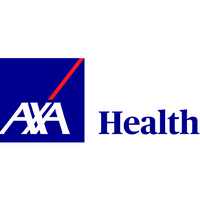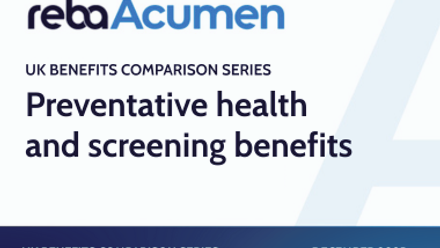How to provide wellbeing programmes that deliver lasting change

The biggest challenge employers face is delivering wellbeing programmes that don’t just make fit people fitter or just raise awareness, but make lasting changes for those who will benefit most from them.
The spirit certainly seems to be willing. Broadly, employers see value through employee engagement – a clear win, given the scale of the challenge. Pursuing it has, unfortunately also, opened the door to ‘tick-box’ health promotions.
Successfully supporting wellbeing affects everyone – and long before we would consider ourselves to be ill. Our habits, biometrics and mindset all play their part. And we can all do better. For example, 95% of the employees we’ve assessed through our Proactive Health Gateway have at least one health risk.
Make it real
Another challenge for employers is authenticity. There is a fundamental difference between employees hearing you say you care about their wellbeing and actually experiencing it. A positive way to make this real is to use evidence-based assessments and coaching within your wider wellbeing strategy.
In today’s digital world, we can be smarter about how we deliver this and respond to the dynamics and nuances of the modern working environment – e.g. working at home or across multi-site locations. Combining smart health assessments with targeted coaching to mitigate employees’ health risks should help to ensure your wellbeing programme contributes to a positive, supportive workplace culture, as well as mitigating performance risk.
It’s an approach that aligns well with employers’ investment strategies. After all, what’s the point of spending money on people who aren’t taking action?
Key biometric measures, for example, can be made in just 15 minutes at a company’s premises while health coaching can be introduced to target those most at risk. We know that overcoming individuals’ lack of awareness and inertia can be challenging and that expert health coaching can provide the motivation and support to set and achieve attainable goals.
Raising awareness
Let’s take a couple of examples. First, working with a risk-based model we have demonstrated that we can get wide coverage of the workforce with both the digital health age calculator and on-site ‘know your numbers’ assessments, and then target those most in need with their health coaching programme.
Across the client base, we have removed more than 23,000 risks, created millions of pounds in value from reduced absence and are well on the way to making the UK 50,000 years younger through the ‘50,000 years younger together’ campaign.
Second, there was our recent pilot study of our ‘Realise Health’ plans, delivered by LiveSmart, (comprising a digital lifestyle and blood -based biometric assessments and monthly telephone coaching). With 100 employees of a London-based employer, we found significant improvement in participants’ blood pressure, nutritional intake, physical activity, stress, mood and vitamin D levels and omega 6:3 ratios after the six-month trial.
Most respondents reported overall improvement in their health literacy and awareness, empowerment and improved mood. The vast majority believed that the programme should be offered to everyone in the company.
Likewise, 79% of those employees who followed both our ‘know your numbers’ and health age calculator assessments and went on to receive health coaching reported an improvement in an aspect of their health.
But does this tie back to value? The science clearly says “yes”. In fact, those with most risks represent employers’ greatest return-on-investment opportunity as most risks are inter-related. That means improving physical activity, nutrition and sleep can have a synergistic effect across several risks. The individual experiences better health and the employer gains through a better-motivated and energised team.
Author is Dr Chris Tomkins, head of proactive health at AXA PPP Healthcare.
This article was provided by AXA PPP Healthcare.
Supplied by REBA Associate Member, AXA Health
At AXA Health, we've been a trusted provider of quality healthcare for over 75 years.







